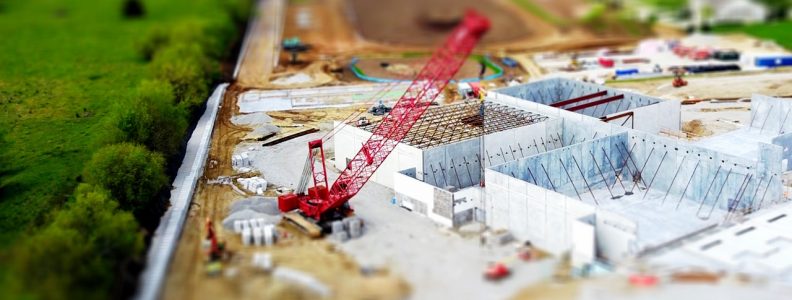Innovation has the fantastic means to triumph in this electronic era. The route of innovation in industry means doing something different, better or brighter which will make a positive difference in worth, productivity or quality by utilising emerging or established technologies. The technology that has already established itself in the past two decades is obviously information technology (IT). It has radically altered the lives of many organisations and individuals. Presently online shopping, electronic marketing, social media and electronic communication and cloud computing, for example, would be the very best examples of the shift which came via the tide of information technologies. Now true business planning, successful promotion, international earnings, orderly management, real-time tracking, immediate customer care and long-term business growth can’t be achieved in the optimal level without IT.
The Value of IT in Business
The success of each company is dependent upon specific elements. A number of which are a true diagnosis, selecting the most appropriate technology and the long-term vision. Research in the previous two decades has demonstrated that those businesses which do invest in technology, such as a property group, pick the route of innovation to improve their market share, financial statistics and general competitiveness. Information technology is the only technology that provides you with the chance to analyse certain information and plan your own company journey accordingly. Additionally, it offers you lots of tools that can resolve complicated issues and plan your scalability (future expansion) of your company. In today’s era, it’s demonstrated that electronic promotion is a fantastic tool that allows you to market your goods or solutions to the worldwide market when sitting in the comfort of your remote office or house. As a result of this, cloud computing and contemporary communication allows you to develop a worldwide business, manage and track its own virtual offices all around the world. I shall briefly explain how information technology plays a very important role in various stages of a company.
Decision Making
Speed and precision are at the centre of making the right decision for your industry. Every thriving organisation needs to experience an extensive market research procedure which allows management to make the ideal choice. Market research could be carried out in lots of ways through internet polls, forums, blogs, group conversations using the World Wide Web and naturally through in-person interviews too. Currently Big info, Google Analytics and Microsoft CRM Dynamics will also be excellent tools to extract valuable information which could influence decision making. These online programs not only offer real time answers from the possible market but also ensure the validity of information by minimising the probability of human mistakes.
Marketing and Business Growth
The centre of the company success lies in its own marketing, which allows the management to recognise its target market initially and then watch their tendencies and requirements. The general marketing covers public relations, advertising, and earnings which then impact on company development, even extending to innovation speakers in Australia. Various kinds of advertising can help you achieve your potential clients. Digital marketing is a contemporary phenomenon that allows you to market your goods or services all around the world. It’s a broad term that includes many theories like search engine optimisation (SEO), pay-per-click (PPC), blogging, discussion forums, email shot, SMS, MMS, sociable networking marketing and Smartphone program advertisement. Presently net market is flourishing at a really fast pace because the majority of entrepreneurs have known that the long-term success in business isn’t feasible without digital presence online. Millions of new sites are being inserted online each year.
Communication with Clients
First of all, technology influences a firm’s ability to communicate with clients. In today’s busy business environment, it’s important for workers to interact with customers fast and clearly. Sites make it possible for clients to find answers to their own queries after hours, not necessarily requiring 24 hour network services in Melbourne. Speedy shipment options make it possible for companies to move products within a large geographic location. When clients use technology to interact with a company, the company benefits because better communication produces a stronger public image.
Performance of Operations

Technology helps a company comprehend its cash flow requirements and preserve valuable resources like time and physical space. Warehouse inventory technologies allow business owners to know how best to deal with the storage expenses of holding an item. With appropriate technology in place, executives may save yourself money and time from holding meetings across the world wide web rather than corporate headquarters.
Business Culture and Class Relations
The technology generates a group dynamic within a company because workers at various places have improved connections. If mill supervisors can communicate with dispatch coordinators in another place, anxieties and distrust are not as likely to evolve. A team selling commercial properties is able to interact with the client a lot more efficiently with the help of technology services. Cliques and societal anxieties can develop into a nightmare in a company; technology frequently helps employees put their distinct backgrounds apart.
Safety
Most companies of the modern age are subject to security threats and vandalism. Technology may be utilised to protect financial information, confidential executive conclusions and other proprietary data that contributes to competitive benefits. In other words, technology helps companies keep their thoughts from their competitors. Using computers with passwords, a company can guarantee none of its forthcoming jobs will probably be replicated by the competition.
Research Capacity
A company which has the technical capability to explore new opportunities will remain a step ahead of its competitors. For a company to survive, it has to grow and develop fresh chances. The web permits a company to practically travel to new markets without the price of an executive or the dangers of producing a mill overseas. A firm can attend a tech conference in Melbourne and still be available for the 3 pm online conference in LA.
Technology has significant consequences on company operations. Regardless of the size of your business, technology has both tangible and intangible benefits that can allow you to earn money and create the results your clients need. Technological infrastructure impacts the culture, efficiency and connections of a business enterprise. In addition, it impacts the safety of confidential data and trade benefits.

















